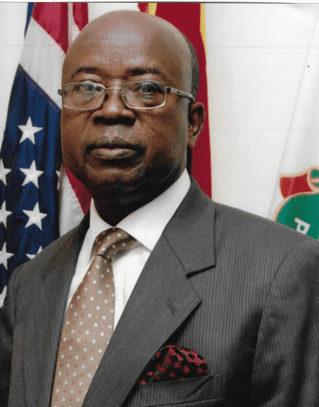By Kingsley LARBI( Rev. Prof.)
In Born to Win, Chapter 26 delves into the transformative journey of faith and fellowship experienced by Prof. E.K. Larbi during his postgraduate studies in Scotland. This narrative is not only a personal memoir but also a compelling exploration of the role of religion in shaping socio-cultural values, fostering community, and addressing systemic challenges.
As we reflect on this chapter, it becomes apparent how these experiences resonate with the broader themes of faith and its socio-economic implications, especially in Ghana.
Religious Fellowship as a Tool for Social Integration
Prof. Larbi’s experience in Scotland, attending churches such as the Apostolic Church, Elim Pentecostal Church, and Saint Kathryn’s Argyle Church, reveals the power of religious institutions to integrate diverse communities.
In particular, the African Caribbean Christian Fellowship (ACCF) exemplifies how faith-based organizations can create networks of support for diaspora communities. These fellowships provide not just spiritual enrichment but also practical assistance, Prof. Larbi recalls how members of the ACCF helped reduce his rent from £500 to £400 through collective effort.
The socio-economic challenges faced by Ghanaians abroad mirror those at home, where communities often rely on mutual support systems to navigate economic hardships. According to the Ghana Statistical Service (GSS), as of 2023, about 33% of Ghanaians live below the poverty line, making community-driven solutions an essential complement to government initiatives.
Unity in Diversity: Lessons for the Ghanaian Church
A key theme in the chapter is the divisive nature of some religious practices, as seen in the critique of the Elim Pentecostal Church’s tendency to criticize other denominations. This stands in contrast to the welcoming and intercessory approach of Saint Kathryn’s Argyle Church.
In Ghana, where over 71% of the population identifies as Christian (2021 Census), unity among denominations can serve as a powerful force for societal transformation. Churches could focus on addressing pressing national issues, such as unemployment (13.2% as of Q2 2023) and inflation (40.1% in October 2023), rather than internal rivalries.
Faith and Development: Implementing Western Lessons in Ghana
Prof. Larbi and his peers in the ACCF discussed the challenges of implementing lessons from the West in Africa. They highlighted punctuality, accountability, and maintenance culture—values critical to socio-economic progress.
The absence of these values often hampers development in Ghana. For instance, Ghana’s road network maintenance backlog is estimated at GH₵3 billion as of 2023, a stark reminder of the cost of neglecting infrastructure.
However, the integration of these lessons into Ghanaian society requires intentional efforts. Faith-based organizations can lead by example, emphasizing these values in their congregations and extending them to community projects.
Faith, Economics, and Global Connectivity
The chapter’s account of Prof. Larbi’s encounter with Dr. Paul Yonggi Cho underscores the global nature of the Christian faith. Dr. Cho’s emphasis on prayer and perseverance reflects the potential of faith as a driver of resilience and innovation.
Ghana’s burgeoning faith economy, with churches contributing significantly to social services, is a testament to this. For example, the International Central Gospel Church (ICGC) invested over GH₵2 million in education and health projects in 2022, showcasing the potential of religious organizations to bridge gaps in public service delivery.
Faith-Based Leadership in Action
Prof. Larbi’s leadership within the ACCF illustrates the role of faith-based organizations in nurturing leaders who can effect change. His presidency in 1993 was marked by discussions on leveraging Western education for Africa’s transformation.
This aligns with the current emphasis on leadership development within Ghanaian churches, such as the mentorship programs initiated by the Pentecost Church to equip members with entrepreneurial skills.
Call to Action: The Role of Faith in National Development
The narratives from Scotland serve as a clarion call for Ghanaian religious institutions to rethink their role in society. By fostering unity, emphasizing critical values, and investing in community development, these institutions can become catalysts for change. As Ghana faces economic challenges, with a debt-to-GDP ratio of 77% as of mid-2023, faith-based organizations have an opportunity to complement governmental efforts in fostering socio-economic resilience.
Conclusion
Faith, as illustrated in Chapter 26 of Born to Win, transcends borders and bridges cultural divides. Prof. Larbi’s experiences in Scotland remind us that religion can be a powerful tool for social cohesion, personal growth, and national transformation. By embracing the lessons from these narratives, Ghanaian religious communities can play a pivotal role in shaping a more unified and prosperous society.










